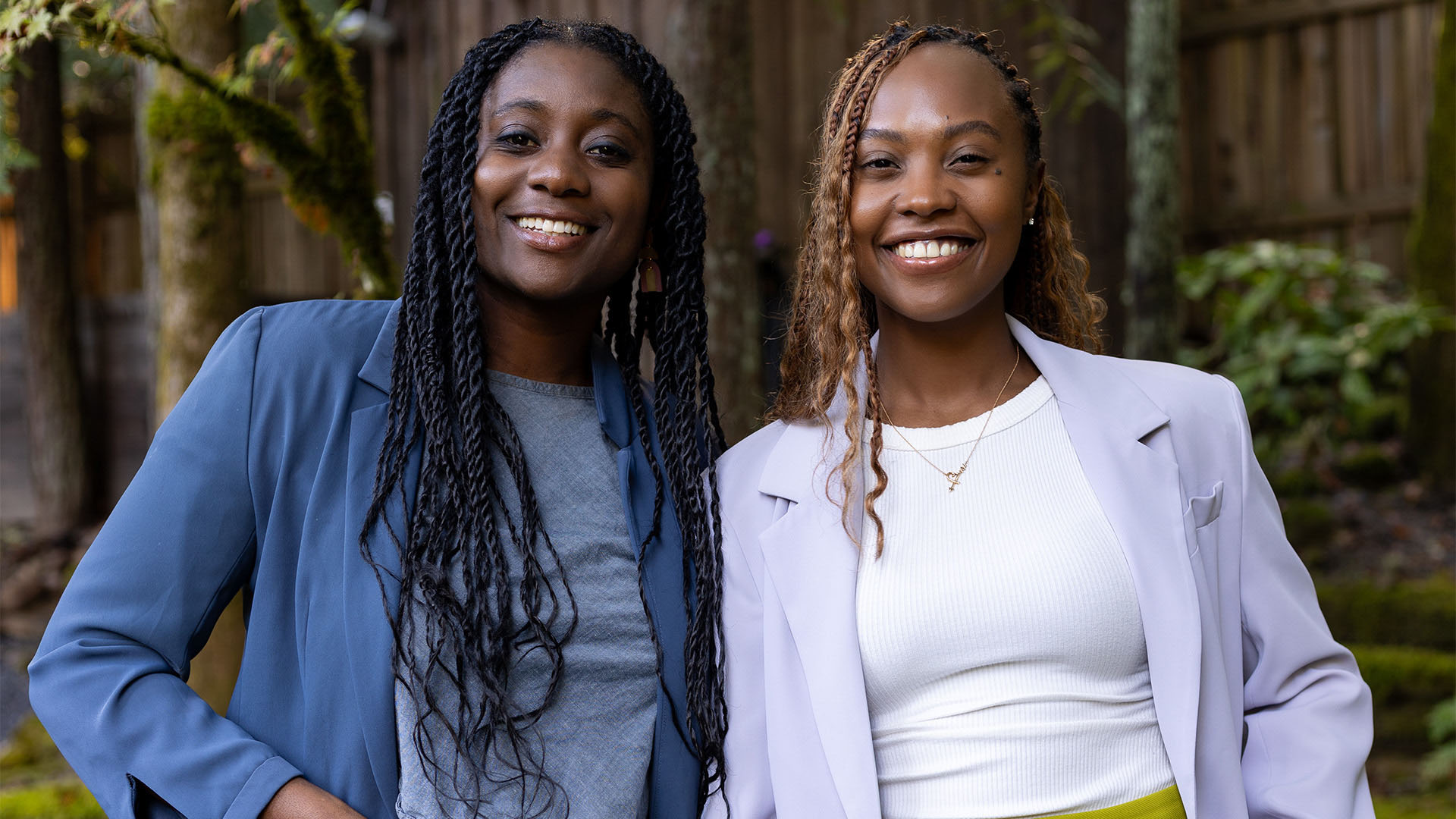Showing 769 results for:
science
Popular topics
All results

South African brewer Apiwe Nxusani-Mawela wants to see more diversity within the beer industry. Nxusani-Mawela is the founder of Tolokazi Premium Beer & Cider, which offers a variety of beers and ciders that honor the legacy of African female brewers and is inspired by the Tolo Kingdom’s history of brewing, according to information shared on her LinkedIn. She began brewing back in 2007 after obtaining a microbiology degree from the University of Witwatersrand and the University of Pretoria, mentions AP News. She also found that she was able to put her science background to good use with brewing. “I sort of fell in love with the combination of the business side with the science, with the craftsmanship and the artistic element of brewing,” she told AP News. This led Nxusani-Mawela to receive further education at the Institute of Brewing and Distilling between 2006 and 2014. By 2019, she positioned herself as a founder within the brewing industry and also owns a brewery that sits in...

Editorial Note: Opinions and thoughts are the author’s own and not those of AFROTECH™. Learning how to code has been centered as the most probable path to prosperity since Mark Zuckerberg rang the bell as Facebook went public in 2012. After the success of Zuckerberg and Meta , being able to learn how to code was marketed by the public and private sectors as a path to not only financial stability but also outsized prosperity. The number of computer science graduates has more than doubled over the past decade from 51,696 to 112,720 when comparing the 2013-2014 academic year to the 2022-2023 academic year, according to the National Student Clearing House, a nonprofit organization that serves as the central source for educational reporting, verification and research across the U.S. The increased focus on computer science makes sense when you learn that computer science graduates also have an average starting salary of $77,000, while the average recent graduate is $68,400, according to...

Florida A&M University (FAMU) has lost a significant grant that helped produced 60% of the nation’s Ph.D. graduates in pharmaceutical sciences. According to the Tallahassee Democrat, the Historically Black College and University’s (HBCU) pharmacy school and its Research Centers in Minority Institutions (RCMI) program will not receive planned funding because a $16.3 million grant supporting them was terminated on March 21. The grant, awarded by the National Institutes of Health (NIH) and renewed in 2024, was originally scheduled to run through March 2029. “The funding was awarded to support new faculty hires and enhanced research in key areas such as artificial intelligence, bioinformatics and cancer biology,” FAMU Interim President Timothy Beard said in a statement, according to the outlet. “For nearly 40 years, faculty and graduate students have relied on this center to conduct biomedical and health research.” He also mentioned, “The program is a critical contributor to the...

Neil deGrasse Tyson is one of the most recognizable figures in modern science, known for making complex astrophysical concepts accessible to the public. With a career spanning decades in academia, television, and publishing, Tyson has built a brand that extends beyond traditional science communication. His earnings come from multiple sources, including books, speaking engagements, television appearances, and his role as director of the Hayden Planetarium. But just how much has this made him? Let’s break down his financial journey before revealing his net worth . How Neil deGrasse Tyson Became a Science Icon Tyson’s passion for astrophysics began at an early age. After earning degrees from Harvard, the University of Texas at Austin, and Columbia University, he became a leading voice in the field. He gained widespread recognition in the early 2000s as the director of the Hayden Planetarium at the American Museum of Natural History. His ability to explain complex scientific theories in...

Since 1908, the Alpha Kappa Alpha Sorority Inc. and its members have made their marks across several industries and impacted communities and spaces. Some influential members include Phylicia Rashad, Coretta Scott King, Rosa Parks, Maya Angelou, Toni Morrison, and Vice President Kamala Harris, according to ESSENCE. Harris was officially sworn in as vice president of the United States on Jan. 20, 2021, making her the first woman, Black person, and South Asian American to be elected to the office. While this historical marker is noteworthy, it was not the beginning of her story. Kamala Harris’ Road To Howard University A native of Oakland, CA, Harris’ roots in education and public service start with the influence of her mother, Shyamala Gopalan. According to a profile from the White House, Gopalan earned her doctorate in 1964, the same year Harris was born, and worked as a breast cancer scientist. Harris’ father, Donald J. Harris, came to the United States from Jamaica to study...

John Legend is helping create a brighter future for students. According to a news release, the “All of Me” singer partnered with Box Tops for Education to support students at Westport Heights Elementary School, a Title 1 school in Los Angeles, CA. With $30,000 from Box Tops, the school plans to invest in the children by developing an outdoor area where they can learn about environmental science. “I recently had the heartwarming opportunity to meet inspiring educators from Westport Heights Elementary School, right in my backyard of Los Angeles,” Legend said in a news release. “I was thrilled to help Box Tops award $30,000 to support their school’s new outdoor space, and I’ve seen it for myself – downloading the Box Tops app is one of the easiest ways for families to show support to educators who are making a difference in our communities. As a father with a long-standing passion for education, I’m honored to be partnering with Box Tops for Education to Champion Legendary Teachers...

Beyoncé has released her next labor of love beyond the realms of music. Throughout her time in the limelight, the songstress and mother of three has never failed to disappoint behind the microphone or with her hair game. This is in part because of her mother, Tina Knowles, who once owned and operated hair salon Headliners in Houston, TX, according to Texas Monthly. “Hair has always been a very big part of our lives,” Tina told Essence. “Just as fashion saved our family, hair is how we made a living.” View this post on Instagram A post shared by ESSENCE (@essence) Beyoncé would work at her mother’s salon, sweeping its floors and listening to regular chatter from women as they sat ready to be served. One client, in particular, who was an opera singer, even became the affirmation for Beyoncé to become a performer. Today, Beyoncé has cemented herself as one of the greatest performers. Her ability to experiment with various sounds and not confine herself into one genre remains her strong...

Two computer science majors from the University of Chicago (UChicago) are making significant strides in advancing improvements in the criminal justice system. Death Of Laquan McDonald Inspired The Need For Change Co-founders Leslie Jones-Dove and Devshi Mehrotra refused to look the other way following two tragedies at the hands of police. In 2015, while attending the University of Chicago in Illinois as freshmen, Jones-Dove and Mehrotra learned of dash cam footage that was released showing 17-year-old Laquan McDonald being fatally shot 16 times by Officer Jason Van Dyke on Oct. 20, 2014, ABC-7 Chicago reports. The incident sparked protests across the city and demonstrations on the University of Chicago campus. For the duo, it served as a launch pad for their interest in the intersection of technology and criminal justice. According to The Guardian, a police union official said McDonald had “lunged at police” before the officer fired shots. However, the video footage told a different...






